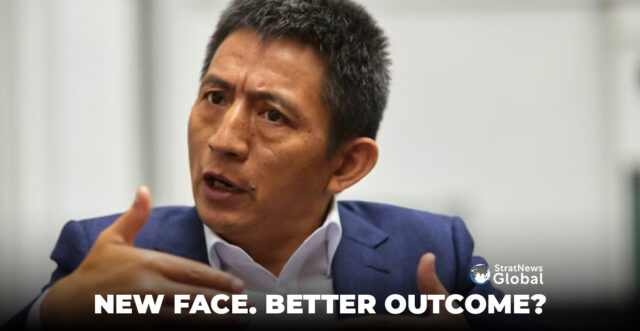On Wednesday, China made a surprise move by appointing a new trade negotiator — its representative to the World Trade Organization — to take over from veteran trade official Wang Shouwen. The change comes at a critical time as trade tensions with the U.S. continue to escalate.
Li Chenggang, 58, a former assistant commerce minister during the first administration of U.S. President Donald Trump, takes over from Wang, 59, the human resources and social security ministry said in a statement.
It was unclear if Wang, who assumed the No. 2 role at the commerce ministry in 2022, had taken up a post elsewhere. His name was no longer on the ministry’s leadership team, according to the ministry’s website as of Wednesday.
The ministry did not immediately respond to a Reuters request for comment on the change, which was not explained in the human resources ministry’s statement.
Tough Negotiator, ‘A Bulldog’
Wang was regarded as a tough negotiator and had clashed with U.S. officials in previous meetings, said a source in Beijing’s foreign business community.
“He’s a bulldog, very intense,” said the source, declining to be named.
The shift within the top leadership at the commerce ministry comes as Beijing pursues a hardline stance in an intensifying trade war with Washington triggered by Trump’s steep tariffs on items imported from China.
Abrupt, Potentially Disruptive Change
The abrupt change also took place in the middle of President Xi Jinping’s tour of Southeast Asia to consolidate economic and trading ties with close neighbours amid the standoff with the U.S.
Commerce Minister Wang Wentao was among senior officials flanking Xi on his visit to Vietnam, Malaysia and Cambodia this week.
Alfredo Montufar-Helu, a senior advisor to the Conference Board’s China Center said the change was “very abrupt and potentially disruptive” given how quickly trade tensions had escalated and in light of Wang’s experience negotiating with the U.S. since the first Trump administration.
“We can only speculate as to why this happened at this precise moment; but it might be that in the view of China’s top leadership, given how tensions have continued escalating, they need someone else to break the impasse in which both countries find themselves and finally start negotiating,” he said.
Different Choice
Unlike multiple other nations who have responded to Trump’s plans for punitive tariffs by seeking bilateral deals with Washington, Beijing has raised its own levies on U.S. goods in response and has not sought talks, which it says can only be conducted on the basis of mutual respect and equality.
Washington said on Tuesday that Trump was open to making a trade deal with China but Beijing should make the first move, insisting that China needed “our money”.
‘Tariff Shocks’
At a February WTO meeting in Geneva, Li slammed the U.S. for arbitrarily imposing tariffs on its trading partners, including China, warning that such moves have triggered “tariff shocks” to the world.
“The unilateralist approach of the U.S. blatantly violates WTO rules, exacerbates economic uncertainty, disrupts global trade and may even subvert the rules-based multilateral trading system. China firmly opposes this and urges the United States to abolish its wrongful practices,” he said.
‘Typical Chinese Technocrat’
Li, who has held several key jobs in the commerce ministry, such as in departments overseeing treaties and law and fair trade, has an academic background in the elite Peking University and Germany’s Hamburg University.
“Judging by his CV, Li is a typical Chinese technocrat with extensive experience in working on trade issues at the commerce ministry as well as at the WTO,” said Alfred Wu, associate professor at the National University of Singapore.
“It seems like a routine promotion with nothing abnormal, but now is obviously a sensitive period due to U.S.-China tensions.”
On March 31, Li attended a Chinese private entrepreneurs forum as a “leader” of the commerce ministry, according to a state media readout of the meeting, one of the first official hints of an impending move to a new role.
(With inputs from Reuters)
















